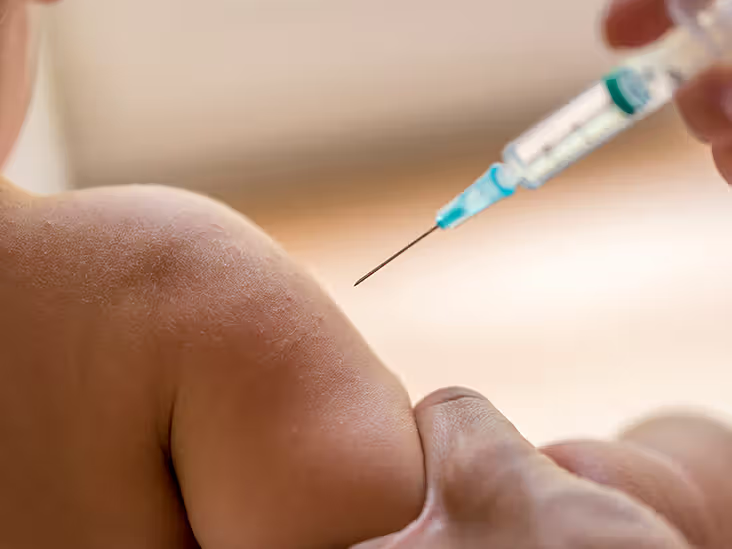Vaccines are an integral component of modern healthcare, helping people of all ages lead longer, healthier lives. By supporting your body’s natural defense mechanisms against diseases like diphtheria, tetanus, pertussis (whooping cough), measles and influenza.
Inactivated vaccines utilize killed versions of germs to create immunity while toxoid vaccines use weakened forms of harmful substances produced by germs in order to provoke an immune response and create immunity.
Hepatitis B
Hepatitis B can be spread when blood or other body fluids from an infected individual enters another’s body through unprotected sexual contact, sharing needles or drug injection equipment or during pregnancy. Hepatitis B infection can result in acute illness as well as chronic infections that eventually damage liver tissue.
Hepatitis B can be prevented with vaccination, while treatment typically varies according to whether an acute or chronic infection exists, including drugs and sometimes liver transplantation.
Research efforts are currently being undertaken to find a cure for Hepatitis B and vaccination will play a critical role in reaching this goal.
Pneumococcal Disease
A pneumococcal vaccine provides protection from infections of the throat, nose and lungs. It is recommended for adults age 65 and up, those living with long-term kidney failure and those who have conditions that weaken immunity such as chemotherapy treatments for cancer. Your primary care provider can advise whether or not pneumococcal vaccination is right for you based on your individual circumstances and can recommend a dose schedule according to your health status; two injections over six months is typically enough. In addition, combination vaccines exist that protect against both hepatitis A and B viruses; most health plans cover such preventive services as preventive services covered under preventive services coverage plans as preventive services provided as preventive services covered under preventive services coverage policies.
Human Papillomavirus (HPV)
Papillomavirus (HPV) is one of the most prevalent sexually transmitted infections in the US, often leading to warts on hands, feet and faces as well as infecting vulva, uterus, penis, scrotum and anus. Some strains of HPV may even lead to cervical cancer; as a result, vaccination against HPV was originally recommended only for people aged 12 through 26. Since 2018, however, this recommendation was extended up to adults age 45.
HPV infections typically resolve themselves within two years with immune system support; however, some forms can linger and transform normal cells into cancer-causing ones. HPV vaccination with Gardasil or Cervarix helps prevent most HPV infections; they don’t protect against cancer-causing infections, but when combined with regular Pap tests they can dramatically lower your risk for cervical cancer and related issues caused by HPV infections.
The HPV vaccine comes in injectable, nasal spray and pill forms and is generally approved and covered by most health insurance plans for most healthy adults. There are egg-free versions for people who are allergic to eggs; there is also a low dose injection available if needles are an issue for someone. Consult with your physician regarding which form is right for you as older people’s immune systems become compromised over time and vaccines become even more essential in protecting against sexually transmitted infections.
Meningococcal Disease
Meningococcal disease is an infection caused by Neisseria meningitidis (meningococcus). There are six main strains of bacteria responsible for meningococcal disease; A, B, C, W X and Y; vaccines are available to protect against exposure to these bacterial strains. Meningococcal disease can be serious; severe illness including meningitis and septicaemia have occurred as a result. Most individuals who contract it make full recoveries; however some ongoing effects such as learning/memorization issues/hearing difficulties/loss of fingers/toes as well as changes in mental health can occur post recovery.
Meningococcal disease-causing bacteria spread from person to person through saliva or mucus exchanged during intimate interactions such as kissing. Meningococcal can also spread via coughing or sneezing, with children, adolescents, and young adults being particularly at risk of contracting this infection.
Meningococcal vaccines exist to offer protection from meningococcal disease; MenACWY vaccine is given routinely from 11-12 years, with a booster recommended at 16 years. Teenagers and young adults aged 16-23 years may also use MenB for protection, while certain medical conditions or lifestyle factors increase their chances of meningococcal infection, such as those living with HIV or rare immune system diseases, those without working spleens or genetic disorders or who spend extended time in crowded environments like college dorms or military barracks.
Influenza
Influenza (in-floo-en-zuh) is a contagious viral illness that can be dangerously fatal to high-risk groups like young children, the elderly and those with chronic medical conditions. The flu virus spreads in droplets when someone with flu coughs or sneezes releasing droplets into the air or touches something containing influenza virus then rubs their eyes, nose or mouth afterwards; people may remain infectious for one or more days before symptoms appear as well as for five to seven days post infection.
Flu vaccines provide protection from disease and complications in people of all ages, with those at greater risk such as those living with certain chronic medical conditions or living in long-term care facilities especially needing them. They should be given annually starting around November, with injectable and nasal spray vaccines typically offered; higher-dose or adjuvanted vaccines may also be recommended for people aged 65+ to increase immune response.
Influenza viruses continually evolve, necessitating that each year’s flu vaccine be tailored accordingly. Most trivalent flu vaccines consist of A/H1N1, A/H3N2 viruses and one B lineage vaccine; but quadrivalent versions exist containing both lineages; these quadrivalent vaccines offer greater protection than either monovalent or trivalent vaccination.




